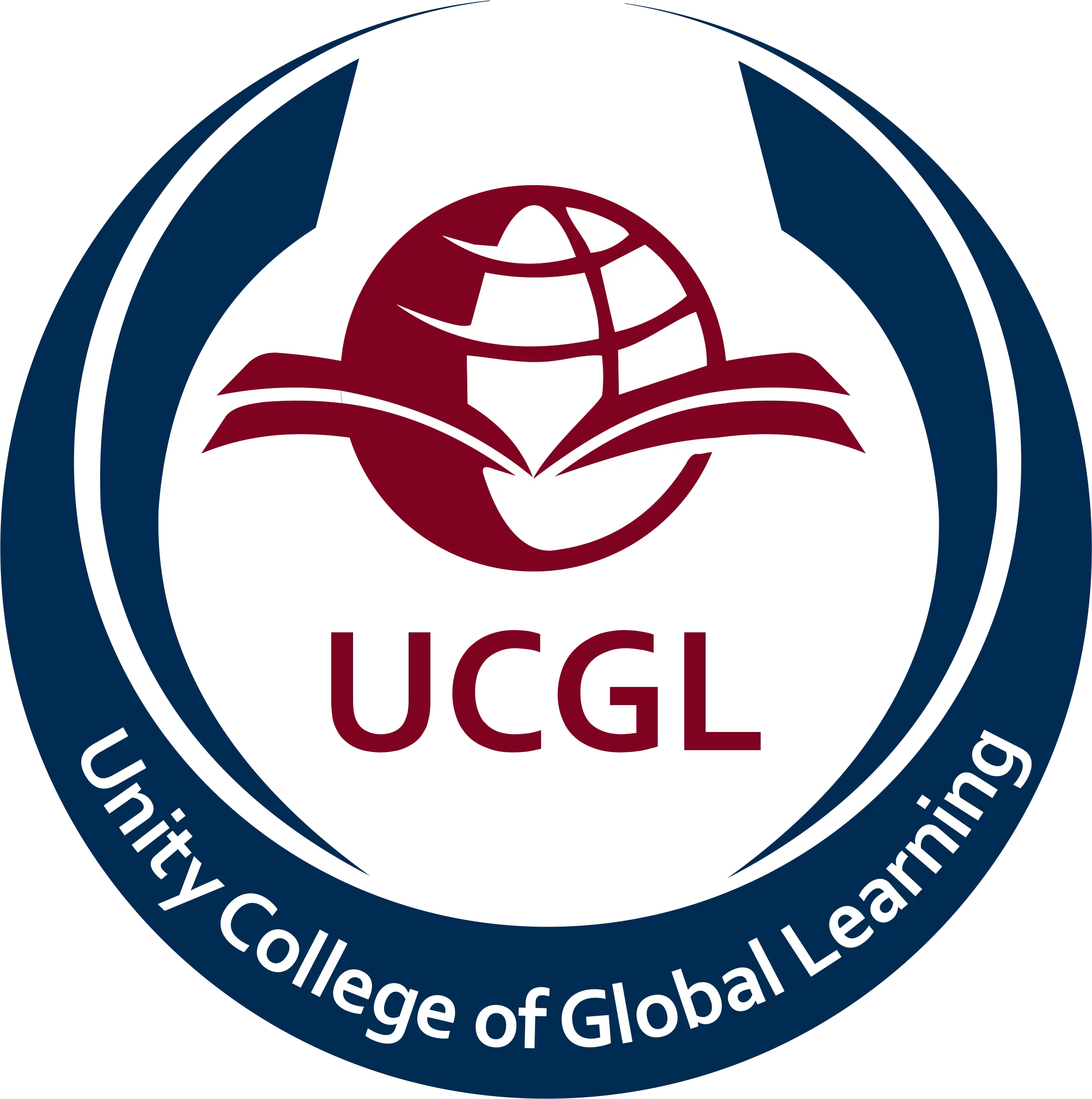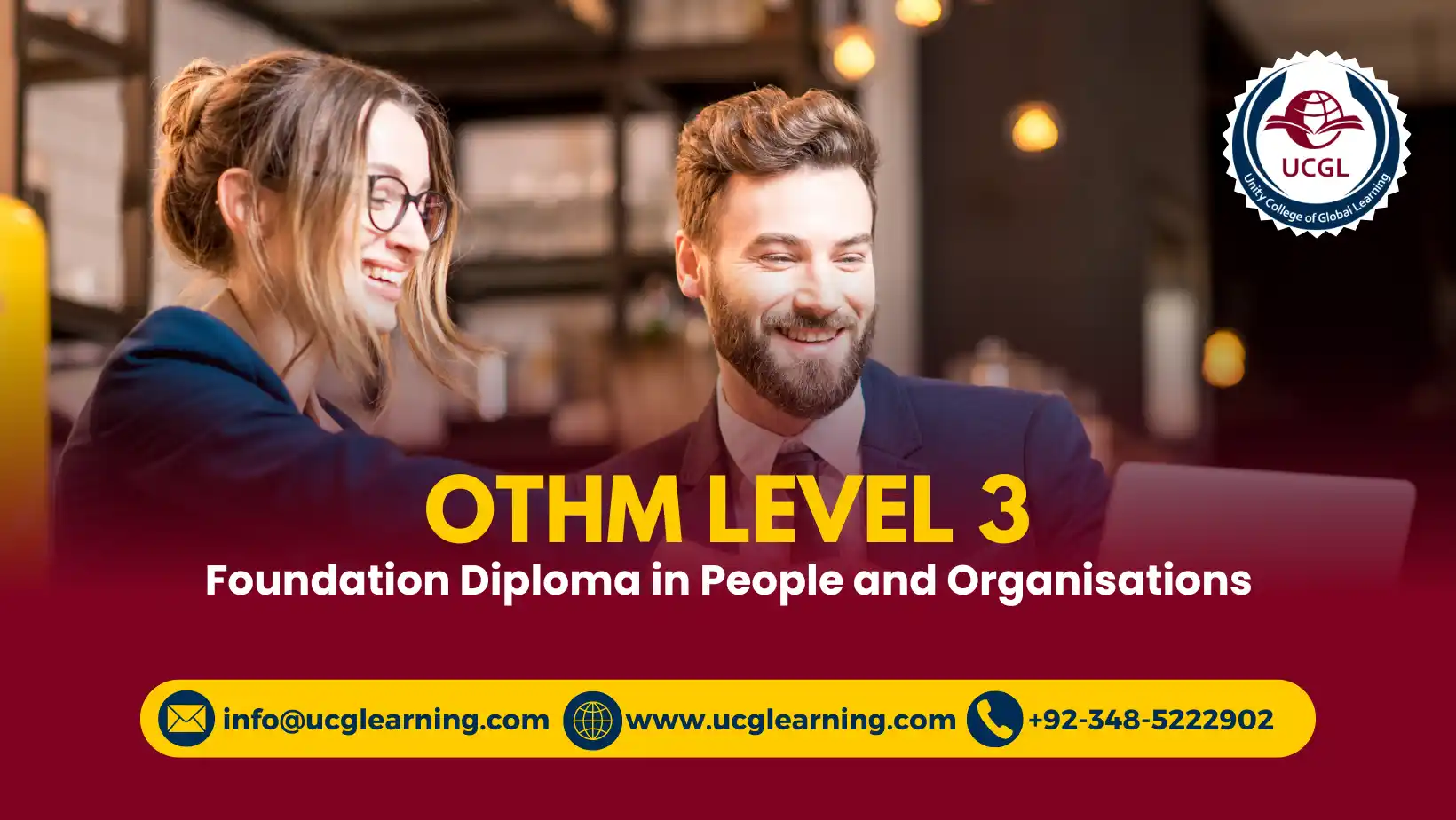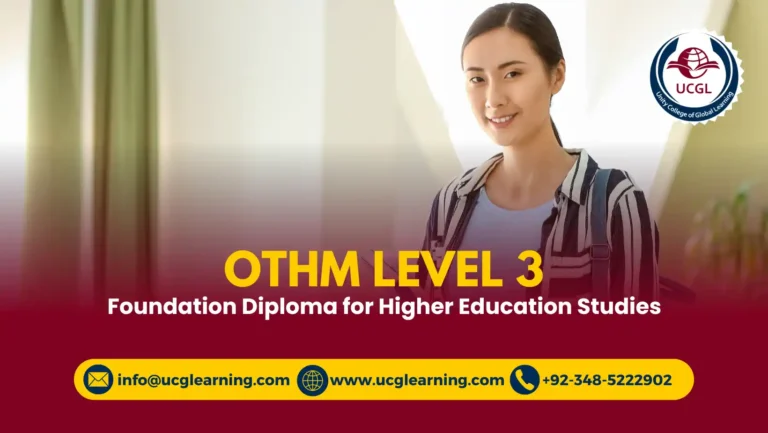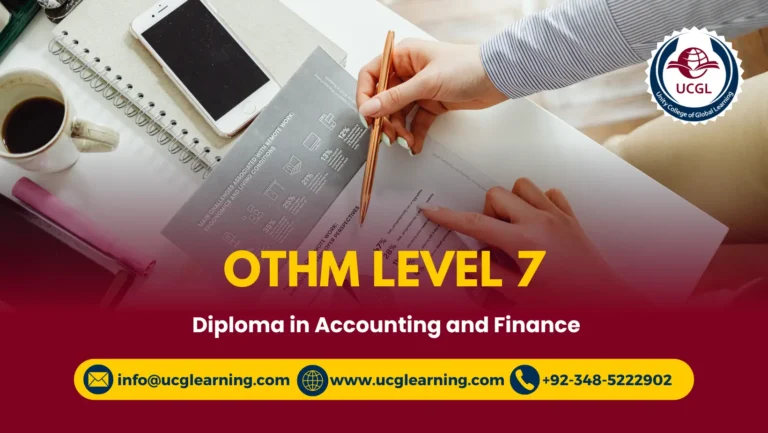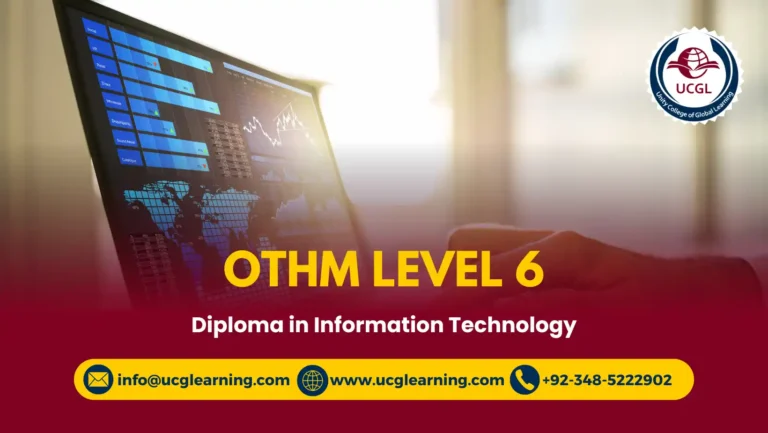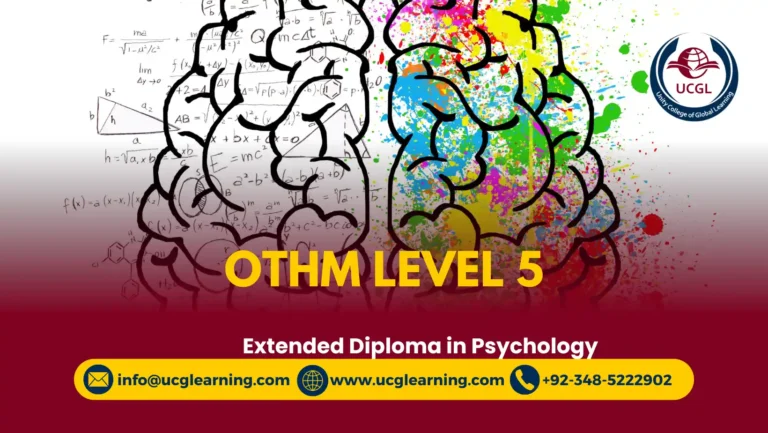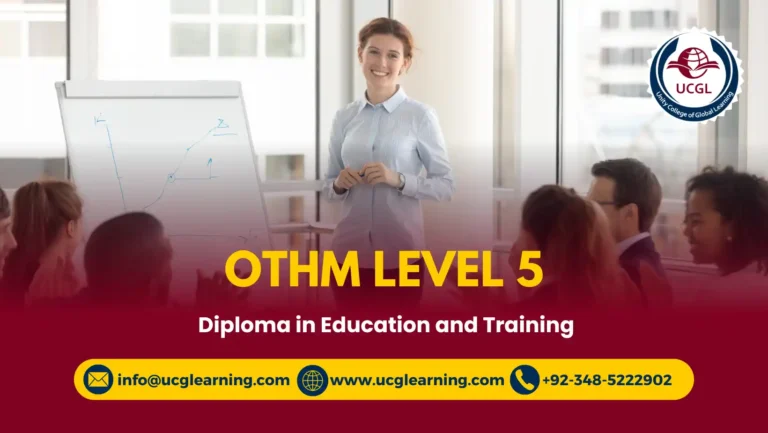OTHM Level 3 Foundation Diploma in People and Organisations
This diploma covers various aspects of people management and organizational behavior. It delves into the dynamics of how individuals and groups interact within an organizational setting. Students will explore topics such as leadership, team dynamics, communication, and organizational culture. The course aims to equip students with the knowledge and skills needed to effectively manage and lead people in a professional environment.
Course Introduction
The Level 3 Foundation Diploma in People and Organisations is a comprehensive program designed to provide students with a solid understanding of how people interact within organizations. This course is ideal for those aspiring to build a career in human resources, organizational development, or any field that requires a deep understanding of human behavior in the workplace.
Course Benefits
- Comprehensive Understanding: Gain a thorough understanding of people management and organizational behavior.
- Practical Skills: Develop practical skills that can be applied in real-world settings.
- Career Preparation: Prepare for a career in human resources, management, or any role that involves working with people.
- Flexible Learning: Benefit from a flexible learning structure that can be adapted to suit individual needs.
- Foundation for Further Study: Build a strong foundation for further studies in related fields.
Course Study Units
- Organisation Structures and their Culture and Values (10 credits)
- Principles of Organisational Planning (10 credits)
- Managing Human Resources (10 credits)
- Personal and Professional Development (10 credits)
- Teamwork (10 credits)
- Leadership and Management Skills (10 credits)
Learning Outcomes
- Organisation Structures and their Culture and Values (10 credits)
- Analyze different types of organizational structures and their impact on culture and values.
- Evaluate the alignment between organizational structure, culture, and strategic objectives.
- Critically assess the influence of organizational culture on employee behavior and performance.
- Propose strategies for fostering a positive organizational culture that supports innovation and adaptation.
- Principles of Organisational Planning (10 credits)
- Develop organizational objectives and strategic plans aligned with mission and vision statements.
- Design and implement effective organizational planning processes and methodologies.
- Evaluate the effectiveness of strategic planning tools and techniques.
- Monitor and adapt organizational plans in response to internal and external factors.
- Managing Human Resources (10 credits)
- Explain key principles and practices of human resource management.
- Apply recruitment and selection strategies to attract and retain qualified employees.
- Develop and implement employee training and development programs.
- Evaluate performance management systems and techniques to enhance employee productivity and motivation.
- Personal and Professional Development (10 credits)
- Identify personal strengths, weaknesses, and areas for development.
- Create a personal development plan that aligns with career goals and aspirations.
- Apply reflective practices to enhance self-awareness and continuous learning.
- Demonstrate skills in time management, goal setting, and self-motivation.
- Teamwork (10 credits)
- Demonstrate effective communication and collaboration skills within teams.
- Analyze team dynamics and roles to optimize team performance.
- Resolve conflicts and facilitate consensus within teams.
- Evaluate the impact of diversity and inclusion on team effectiveness.
- Leadership and Management Skills (10 credits)
- Develop leadership competencies required for organizational success.
- Apply different leadership styles and approaches in varying organizational contexts.
- Demonstrate skills in decision-making, problem-solving, and strategic thinking.
- Evaluate ethical considerations and responsibilities associated with leadership roles.
These learning outcomes are designed to encompass the knowledge, skills, and abilities that students should acquire upon completing each respective unit of study in organizational management and development. They reflect the broad objectives of each course and can be further tailored to specific curriculum requirements and learning goals.
Who is this Course For?
This course is ideal for:
- Aspiring human resources professionals.
- Individuals looking to enter management roles.
- Those interested in organizational development.
- Students planning to pursue further studies in related fields.
- Anyone interested in understanding the dynamics of people within organizations.
Future Progression
Upon completing the Level 3 Foundation Diploma in People and Organisations, students can progress to higher-level qualifications such as:
- Level 4 Diploma in Human Resource Management
- Level 4 Diploma in Business Management
- Level 4 Diploma in Leadership and Management
- University degrees in Human Resources, Organizational Behavior, or related fields
This course provides a stepping stone to a wide range of career opportunities and further educational prospects, making it an excellent choice for those looking to make a mark in the field of people management and organizational development.
